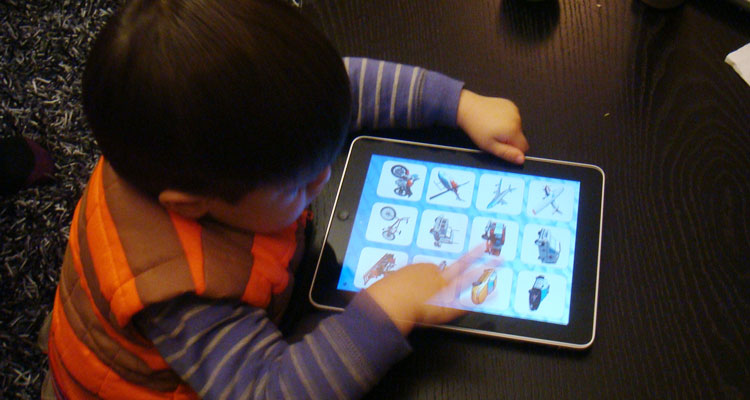Visit any public space, and what do you notice? You are likely to observe that more than half the people are engaged with digital devices. Given today’s hi-tech world, it’s not surprising that young children are eager to get their hands on smartphones, tablets, and other tools with immersive electronic experiences. Sure, more and more families have technical devices like tablets and smartphones in their homes, but how does this engagement impact a young child’s development? Well, we don’t have all the answers yet, but some research has been done on this subject.
What Is the Impact of Technology for Kids?
We know that healthy socio-emotional growth is a critical aspect of the early years. Socio-emotional skills include the ability to build and maintain positive relationships with others, experience and express emotions, and explore and interact with the surrounding environment. In fact, research suggests that the greatest influence on socio-emotional growth is a child’s relationship with primary caregivers. So, will these electronic devices affect the socio-emotional growth of young children? Are they good or bad for little ones?
Dig into this topic, and you will find differing opinions. I agree with Dr. Chip Donohue that right-sized digital tools are cognitively stimulating when used judiciously and appropriately. I also think that today’s technology has the potential to support healthy socio-emotional development, depending on what, how, and when these tools are used. A recent report showed that 40 percent of kids between two and four years of age have access to tablets and smartphones, so let’s be sure we pay attention and offer careful guidance.
Supervision Is Key
First and foremost, toddlers and preschoolers should not have unlimited access to these intriguing devices. Adults should be available and observant when young children interact with electronic tools. Otherwise, little ones will quickly become absorbed and, all too often, unable to disengage. This is one reason why experts warn parents to set reasonable rules and boundaries for use of any digital media.
However, when adults are part of the equation, this engagement can be beneficial. Websites such as Common Sense Media and Children’s Technology Review help adults select high-quality, child-friendly media and apps. Instead of tuning out, parents should be actively involved when children explore the digital world. While children create artwork, play games, respond to prompts, construct stories, and more online, wonderful opportunities for verbal dialogue and shared engagement emerge. Adults can have fun with kids, offer positive feedback, reinforce progress, and encourage skill development while modeling focused interaction. Of course, toddlers and preschoolers also need plenty of outdoor time, physical activity, cooperative play with peers, hands-on exploration, and rich conversation to complement their development.
My Recommendation
From my point of view, guiding children to “grow with technology” is better than “closing the door” to exciting possibilities for learning and growth. Adults must accept the responsibility that accompanies these new electronic adventures and, if they do, embracing these opportunities with mindful behavior can lead to meaningful shared experiences that fuel socio-emotional development.




































